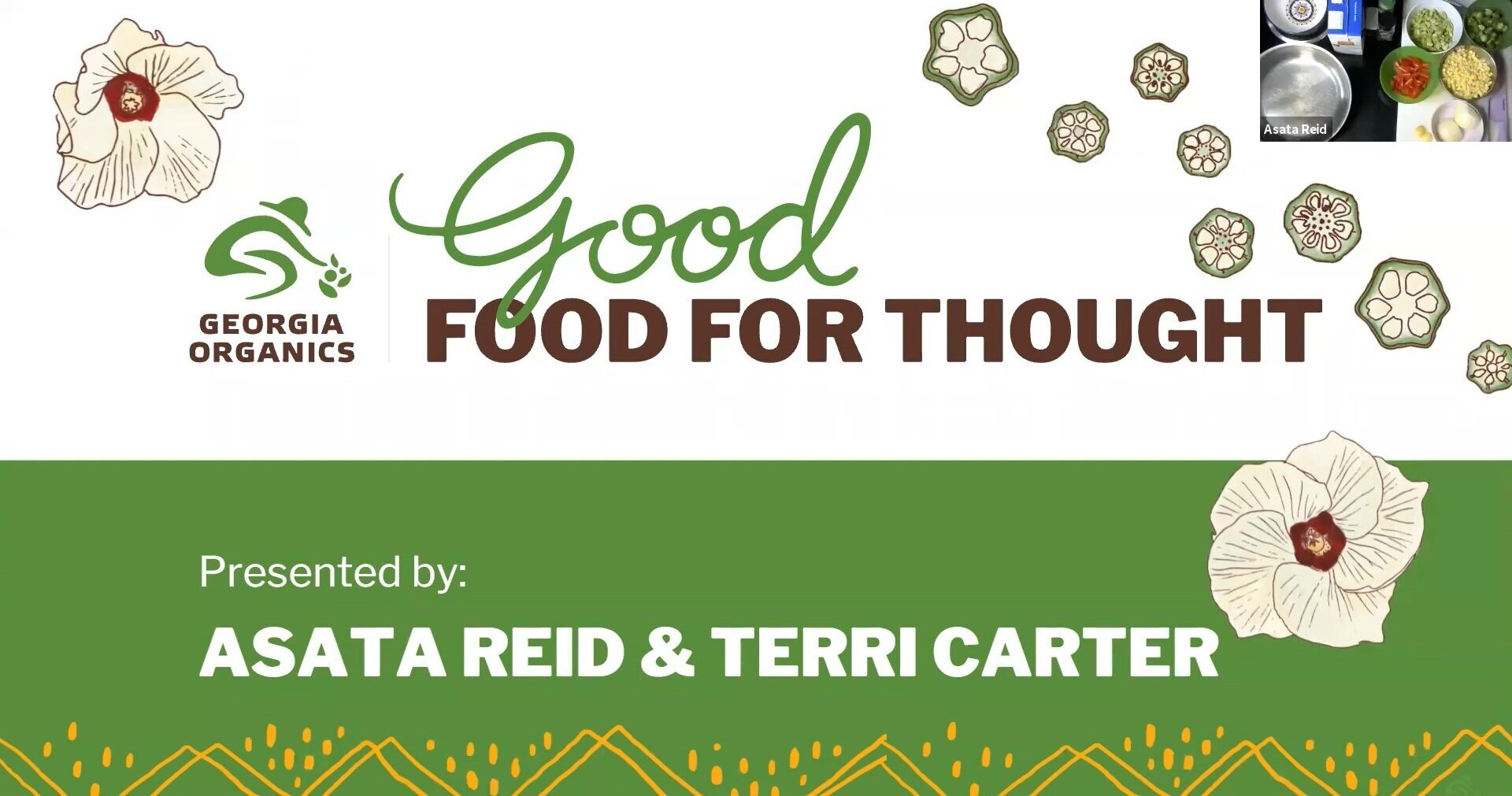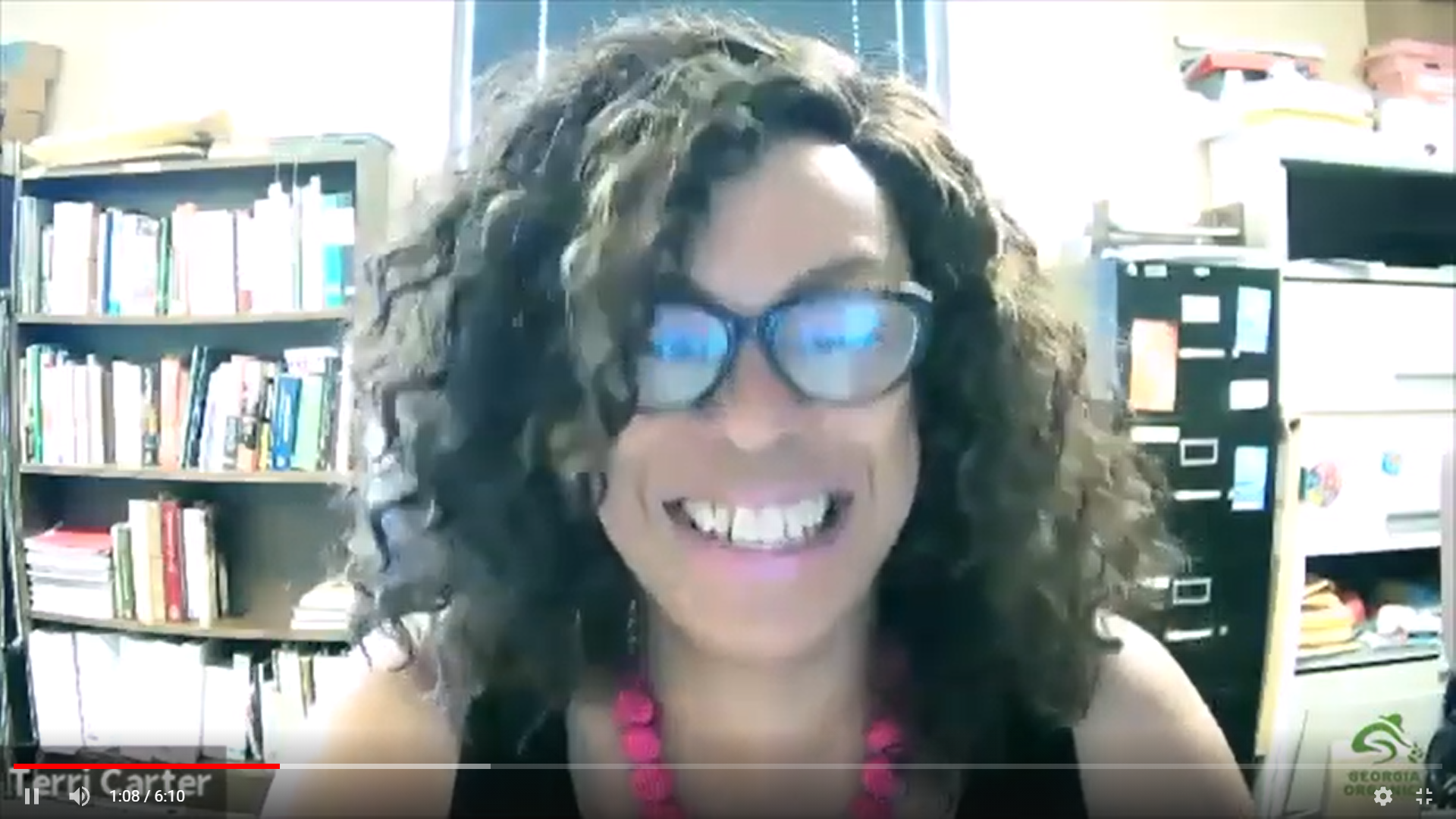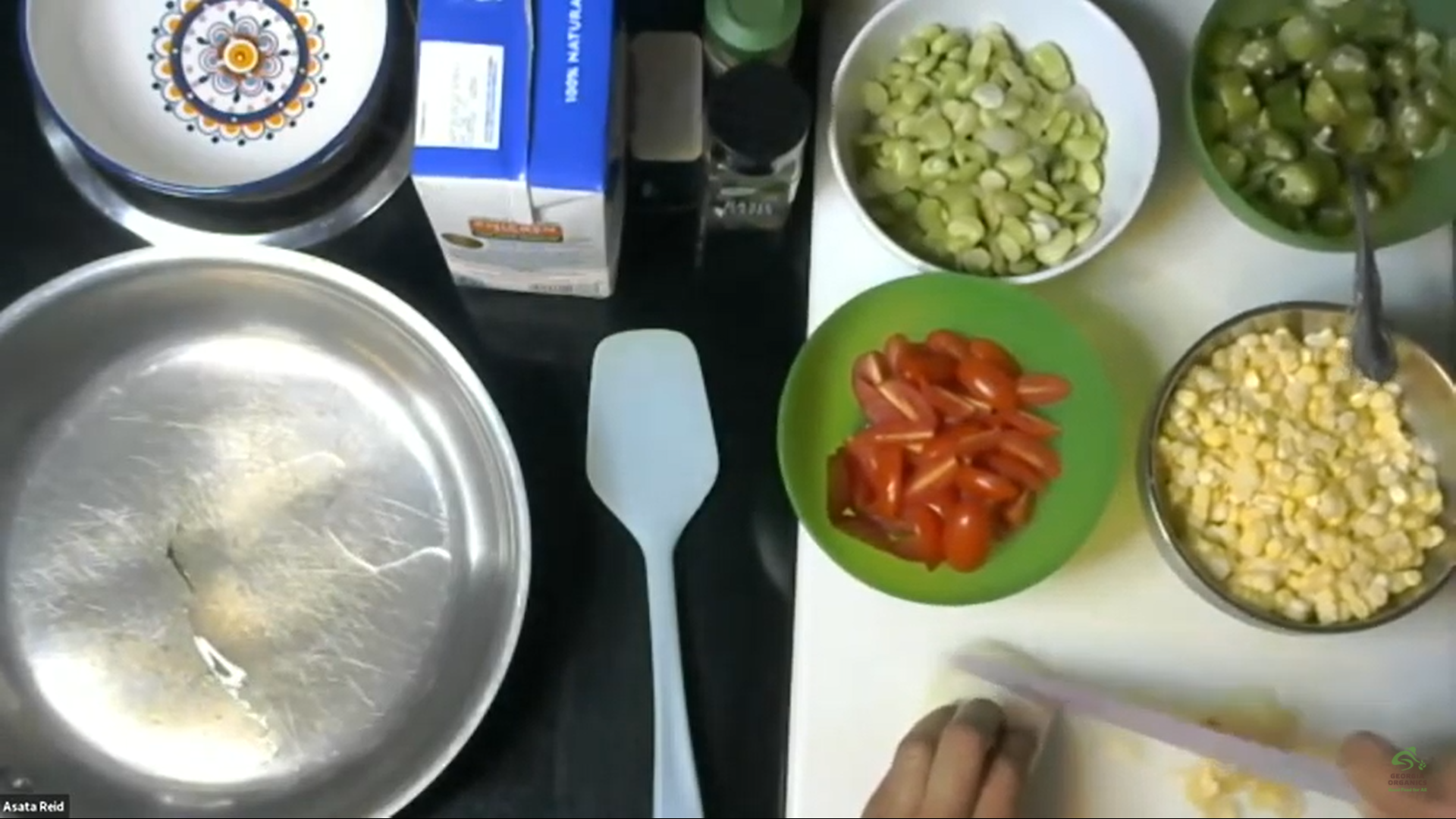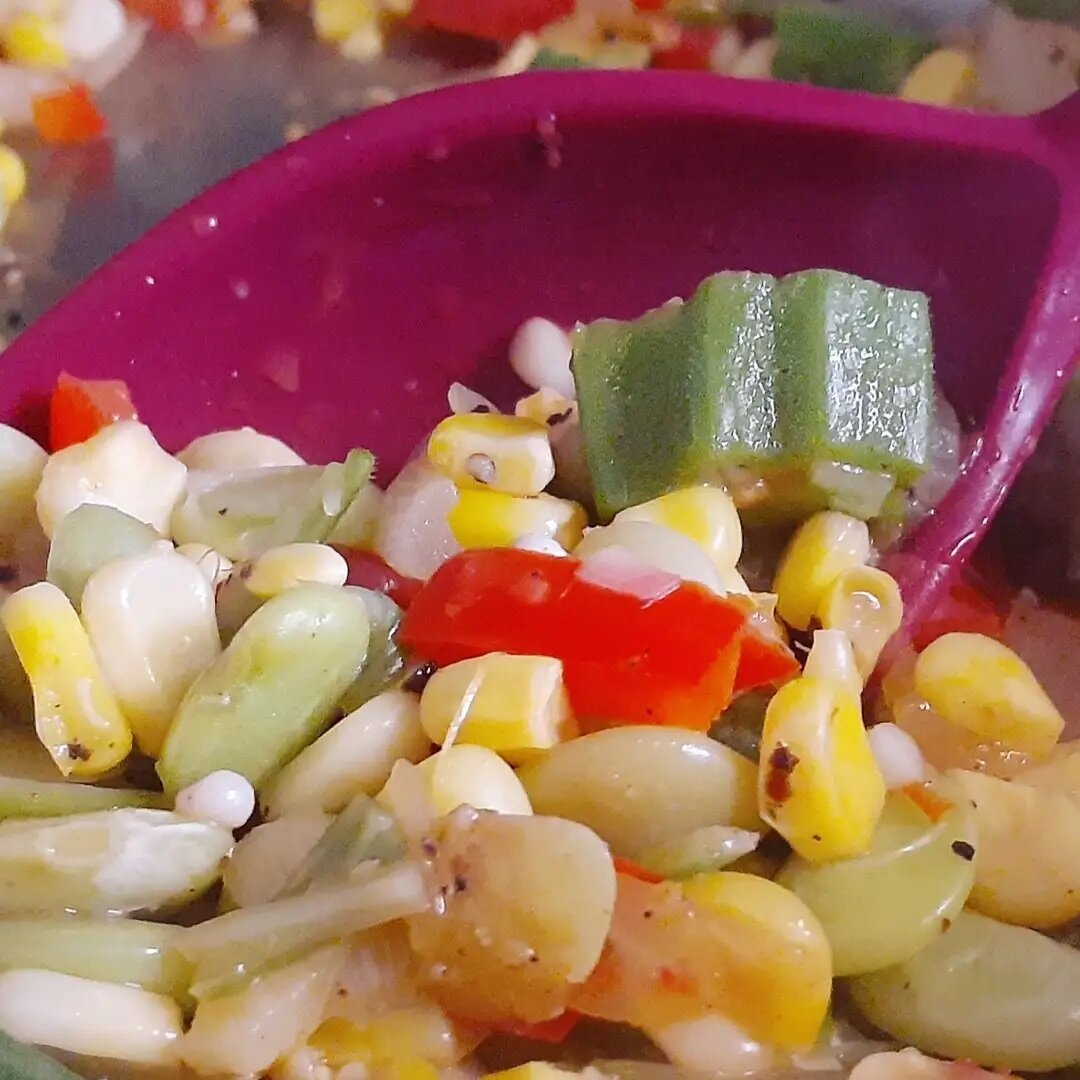By Kimberly Koogler
Kimberly Koogler is the Farm to School Coordinator at Georgia Organics.
Next in our webinar series line-up on October 20 is Livin' la Vida Okra con Mis Pequeños Genios presented in Spanish by Maria Claudia Ortega of My Little Geniuses and Lena Enciso of Georgia Organics and translated to English by Kimberly Koogler of Georgia Organics.
Today is your special day because we’re freely offering to you the steaming secrets of an American treasure, a most satisfying succotash. Welcome to this high society!
In case you missed it, The Secret Succotash Society gathered last week, and the not-so-secret secrets of “suffering succotash” were revealed. Cobb County UGA Extension Agent, Master Gardener, and Food Historian, Terri Carter (pictured below) beautifully laid out some of the intriguing and important histories behind both okra and the old, multicultural dish called “succotash.”
Chef, Author, and Health Educator, Asata Reid gave to us a live demonstration of how to cook succotash, made our mouths water, and shared with us some culinary secrets as well as some suggestions for incorporating cooking into curriculum and/or curriculum into cooking.
Here are some key takeaways, but seriously, check out the recording of this presentation (scroll down!) to make sure you get all the juicy bits:
Africans, kidnapped and forced into slavery brought okra to the Americas.
Explore the different names around the world for okra and how okra is used in different cultures.
Succotash, introduced to struggling colonial immigrants by the Narragansett people, was born out of the genius Native American technology and system of planting known as the “three sisters”. The basic elements are corn, squash, and beans. This brilliant combination of legumes and whole grains provides the amino acids your body needs to create complete proteins.
Culinary secrets:
To avoid okra slime, cook fresh, whole okra quickly, just until bright green and still firm.
Or cook okra longer in stews so that it becomes part of the sauce and thickens the stew.
Make sure you use a heavy pan (it’s better for caramelization and it’s safer in the classroom).
Don't overcook your corn!
Use lots of smoky paprika for flavor if you’re not going to use bacon or sausage.
A whole lot of black pepper is the secret to Southern cooking.
Serve your succotash over rice for a super sensational and satisfying, not-at-all-suffering, nutrient dense meal.
This simple dish is bursting with opportunity to learn and teach: history, culture, social studies, math and science, measurements, chemical reactions, emulsification, knife skills, exploration of shapes, size, contrasting colors…
Here is the recipe and scroll down or click here to check out the recording!
Next in our webinar series line-up on October 20 is Livin' la Vida Okra con Mis Pequeños Genios presented in Spanish by Maria Claudia Ortega of My Little Geniuses and Lena Enciso of Georgia Organics and translated to English by Kimberly Koogler of Georgia Organics.
To see all of our upcoming Good Food for Thought events, visit georgiaorganics.org/virtual-events.
To learn more about and sign up for Livin’ la Vida Okra visit bit.ly/livinlavidaokra.
To learn more about Georgia Organics, visit georgiaorganics.org, and follow us on social media @GeorgiaOrganics and at facebook.com/GeorgiaOrganics.






